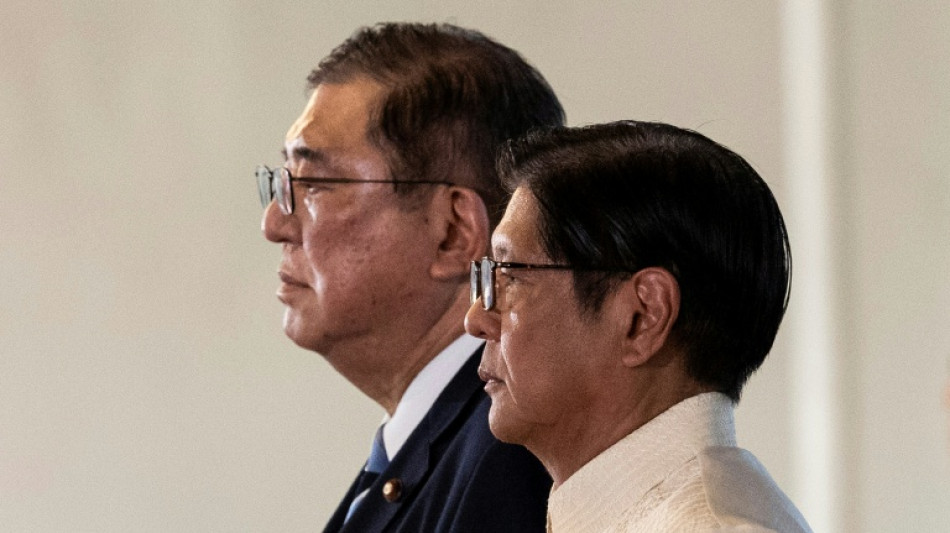
Japan, Philippines leaders vow to deepen security ties

The leaders of Japan and the Philippines pledged in Manila on Tuesday to deepen security ties, including increased intelligence sharing, as they grapple with territorial disputes with China.
Japanese Prime Minister Shigeru Ishiba, on his first visit to the Philippines since assuming office in October, said both leaders opposed "attempts to change the status quo in the East China Sea and the South China Sea by force or coercion".
The two countries have previously signed a visiting forces agreement, which has been ratified by the Philippine Senate, allowing them to station troops on each others' soil.
"We agreed to start negotiations on an acquisition and cross-servicing agreement," Ishiba said after his meeting with Philippines President Ferdinand Marcos on Tuesday.
Such deals have typically involved the transfer of supplies and services between militaries.
"We also confirmed the start of government-to-government talks towards sealing a security of information agreement in the future," Ishiba said.
Praising a "golden age" in relations, Marcos said Tokyo's previous security assistance had "allowed our security agencies, and especially the Department of National Defence, to achieve meaningful upgrades."
Chinese-Philippine relations have been repeatedly tested by confrontations involving the two nations' coast guard vessels in the disputed South China Sea.
Beijing claims nearly all of the disputed waterway despite an international tribunal ruling that its assertion has no legal basis.
Tokyo has been a key financer of Philippine efforts to modernise its South China Sea patrol craft as well as maritime surveillance systems.
Japan has its own dispute with China over uninhabited islands in the East China Sea -- known as the Diaoyu in China and Senkaku in Japan -- which are claimed by Beijing but administered by Tokyo.
The two countries' shared grievances over China's territorial claims have seen them draw increasingly close to each other -- and treaty ally the United States.
Marcos and former Japan prime minister Fumio Kishida visited Washington late last year for their nations' first trilateral summit.
Ishiba said on Tuesday he and Marcos had "affirmed the importance of Japan-US-Philippines cooperation".
On the economic front, the Japanese premier said the two men had also talked about the impact of US President Donald Trump's tariff blitz.
"We discussed the current measures taken by the United States, as well as the impact felt on... the world economy, because of the reciprocal retaliation seen between the United States and China," he said.
While hit with a "reciprocal" levy of 17 percent, Manila's Department of Trade and Industry has noted the country ranks among "the least hit" regionally by the tariffs and played up the opportunity that presents.
Trade secretary Cristina Roque was scheduled to leave Tuesday for talks in the United States that will reportedly focus heavily on the tariff issue.
N.Roberts--TNT